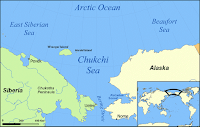President Obama gave environmental advocates a Christmas present when he announced in late December that he was banning oil and gas drilling in huge swaths of the Arctic and Atlantic oceans. This action “indefinitely” protects almost 120 million acres of ecologically important and highly sensitive marine environments from the risks of oil spills and other industrial impacts.
President Obama acted boldly to conserve important ecological resources and solidify his environmental legacy. But by making creative use of an obscure provision of a 1953 law, Obama ignited a legal and political firestorm.
Republicans and oil industry trade groups are threatening to challenge the ban in court or through legislation. They also contend that the Trump administration can act directly to reverse it. But a close reading of the law suggests that it could be difficult to undo Obama’s sweeping act.
The power to withdraw
Congress passed the law now known as the Outer Continental Shelf Lands Act in 1953 to assert federal control over submerged lands that lie more then three miles offshore, beyond state coastal waters. Section 12(a) of the law authorizes the president to “withdraw from disposition any of the unleased lands of the outer Continental Shelf.”
Starting in 1960 with the Eisenhower administration, six presidents from both parties have used this power. Most withdrawals were time-limited, but some were long-term. For example, in 1990 President George H. W. Bush permanently banned oil and gas development in California’s Monterey Bay, which later became a national marine sanctuary.
President Obama used section 12(a) in 2014 to protect Alaska’s Bristol Bay, one of the most productive wild salmon fisheries in the world. In 2015 he took the same step for approximately 9.8 million acres in the biologically rich Chukchi and Beaufort seas.
Obama’s latest action bars energy production in 115 million more acres of the Chukchi and Beaufort seas – an area known as the “Arctic Ring of Life” because of its importance to Inupiat Peoples who have lived there for millennia. The order also withdraws 3.8 million acres off the Atlantic Coast from Norfolk, Virginia to Canada, including several unique and largely unexplored coral canyons.
...
What happens next?
Critics of President Obama’s action, including the state of Alaska and the U.S. Chamber of Commerce, say they may challenge Obama’s order in court, in hopes that the Trump administration will opt not to defend it. But environmental groups, which hailed Obama’s action, will seek to intervene in any such lawsuit.
Moreover, to demonstrate that they have standing to sue, plaintiffs would have to show that they have suffered or face imminent injury; that this harm was caused by Obama’s action; and that it can be redressed by the court. Market conditions will make this very difficult.
Read more at Will Trump Scuttle Obama's Offshore Drilling Bans?

No comments:
Post a Comment